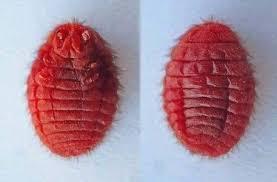this is the bug used for red candies.
- FAVORITEN
- EXPLORE
- Seiten
- Gruppen
- Veranstaltungen
- Blogs
- Rewards
Nach Verein filtern
- Sustainability
- Home
- Wellness
- Theater
- Sports
- Shopping
- Religion
- Party
- Other
- Networking
- Music
- Literature
- Art
- Health
- Gardening
- Spiele
- Food
- Fitness
- Film
- Drinks
- Dance
- Crafts
- Causes
Read More
The Last Enchanter: A Magical Quest
**"The Last Enchanter: A Magical Quest"** follows the journey of the final enchanter in a world...
The importance of Lifelong Learning
Lifelong learning is essential in today's fast-paced, ever-changing world. It enables individuals...
Nitrogen Dioxide and Its Effects
Nitrogen dioxide (NO2) is a major player in air pollution, and it’s something we should...
×
Your daily access limit has been reached. Please try again tomorrow.
© 2025 GoSharpener Pvt.Ltd.
Refund and Cancellation policy - We do not entertain any refunds and cancellation Deutsch
Refund and Cancellation policy - We do not entertain any refunds and cancellation Deutsch


Allergic reactions
Some people may experience allergic reactions to cochineal extract, including hives, itchy skin, rhinitis, diarrhea, and anaphylaxis.
Labeling
In the US, the FDA requires that cochineal extract be identified by name on food labels.
Pasteurization
The FDA also requires that cochineal extract be pasteurized to destroy any salmonella.
Vegetarian
Cochineal is not suitable for vegetarians because it's made from insects.
Cochineal extract is derived from the female cochineal, a type of insect that lives on prickly pear cacti. The insects are sun-dried, crushed, and treated with an acidic alcohol solution to produce carminic acid, which is then used to make cochineal extract.
Cochineal extract is used in many foods and drinks, as well as in cosmetics and pill coatings.